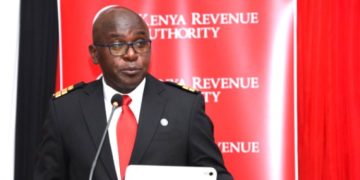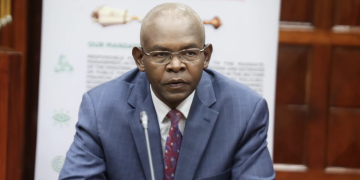The Teachers Service Commission (TSC) Act of 2012 provides the legal framework for the conduct expected of all registered educators through the Code of Conduct and Ethics for Teachers, 2015.
This Code, which applies to all registered teachers, mandates compliance with specific provisions of the General Leadership and Integrity Code set out in Part II of the Act and the guiding principles of Chapter Six of the Constitution.
A teacher’s position is inherently one of public trust, requiring that authority and responsibility be exercised in the best interest of the learners, the institution, and the public.
This duty requires teachers to uphold the Constitution, perform their duties in accordance with the law, and respect fundamental rights and freedoms, while avoiding discrimination based on grounds such as race, sex, age, or religion.
Prohibited TSC Behaviors
TSC outlines strict requirements and prohibited activities to safeguard learners, maintain professional integrity, and uphold public trust.
Also Read: Simple Steps for TSC Teachers to Submit Appraisals Online
Failure to adhere to these prohibitions may subject a teacher to disciplinary procedures.
Based on the Code, the following are 10 critical actions and behaviors that are explicitly prohibited for registered teachers:
- Sexual Misconduct with Learners: A teacher shall not engage in any sexual activity whatsoever with a learner, regardless of whether the learner consents. This prohibition also extends to making a request to, or exerting pressure on, a learner for sexual activity or favour, or engaging in flirtation with a learner.
- Abuse, Neglect, and Harm: A teacher shall not subject a child to abuse, neglect, harmful cultural practices, all forms of violence, discrimination, inhuman treatment, corporal punishment, or exposure to hazardous or exploitative labour.
- Conflict of Interest in Tendering and Contracts: A teacher shall not participate in any tendering process where their personal or proprietary interests conflict with their duties. They shall not award tenders to themselves, spouses, relatives, or business associates, nor shall they be involved in bid-rigging (receiving a benefit for manipulating or withdrawing a bid).
- Corrupt Practices and Bias: A teacher shall not practice nepotism, favoritism, tribalism, cronyism, religious bias, or engage in corrupt or unethical practices while performing their duty.
- Improper Enrichment and Misappropriation: A teacher shall not use their office to unlawfully or wrongfully enrich themselves or any other person. This also prohibits a teacher from asking for or accepting any property or benefit for themselves or any person on account of anything done or omitted in the discharge of their duties. A teacher shall not misappropriate public funds.
- Illegal Financial Dealings: A teacher shall not live beyond their means and must avoid incurring any financial liability they cannot satisfy. They shall not neglect their financial obligations or neglect to settle them, nor shall they evade taxes.
- Unauthorized Absence and Duty Neglect: A teacher shall not be absent from duty without proper authorization or reasonable cause. A teacher’s assigned duties must take precedence over all other activities.
- Substance Abuse and Exposure of Learners: A teacher shall not supply illicit drugs, cigarettes, or alcohol to a learner, expose a learner to these substances, or assist a learner in obtaining access to them. A teacher is also prohibited from peddling or consuming illicit drugs, cigarettes, and alcohol while on duty, or reporting to work under their influence.
- Adult Toys: A teacher shall not expose a learner to pornography (explicit depiction of sexual subject matter electronically or otherwise) or sexual toys (an object or device primarily used in facilitating human sexual pleasure) or assist a learner in obtaining access to the same. They are also prohibited from supplying pornographic materials to a learner, fellow employee, or member of the public.
Also Read: TSC System That Lets Teachers View Payslips Anytime, Anywhere
- Conducting Holiday Tuition: A teacher shall not conduct holiday tuition. A teacher may, however, engage in teaching or learning activities outside normal school hours to promote education.
Professionalism and Integrity
Teachers must not use the prestige of their office to advance private interests or convey the impression that others are in a special position to influence them.
Professionalism requires maintaining a neat and decent standard of dressing that befits the dignity of the teaching service, observing official working hours, being punctual, and meeting deadlines.
A teacher’s private and public conduct must always uphold the dignity and integrity of the teaching service.
Teachers must prioritize assigned duties over all other activities and manage public resources prudently.
Follow our WhatsApp Channel and X Account for real-time news updates.














































































